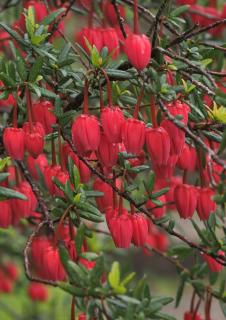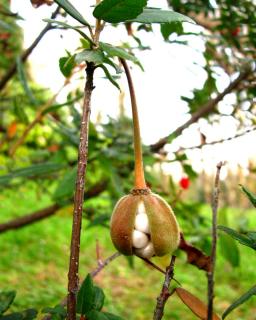

Crinodendron has a beautiful summer blooming that’s a true enchantment in gardens.
Key Crinodendron facts
Name – Crinodendron hookerianum
Family – Elaeocarpaceae
Type – shrub
Height – 6-32 feet (2-10 m) (variety)
Exposure – part sun, sun
Soil: rich enough – Foliage: evergreen – Flowering: late spring to mid-summer
Caring for this plant, from planting to pruning, will increase growth of your crinodendron and appearance of flowers.

It is best to plant in spring because the crinodendron is vulnerable to strong frost spells.
For areas that have a rather mild winter, you can plant in fall.
For Crinodendron grown in pots or garden boxes, remember to bring it under shelter in winter, especially if temperatures routinely fall below 23°F (-5°C).
Indeed, under 23°F (-5°C), crinodendron probably won’t survive.
It isn’t necessary to prune the plant. Nonetheless, if you wish to balance the shape or reduce the size of its branches, wait for blooming to be over.
Water regularly as it flowers, but not too much and possibly provide organic fertilizer to stimulate the opening of cute flowers.

In Chili, it’s also called the Lantern tree; that’s where the common name comes from.
Its bushy bearing, long thin leaves and lantern-shaped flowers make it a very ornamental shrub.
Abundant blooms appear from late spring to almost the end of summer. In certain climates it can even start mid-spring (April) and end in early fall (September).
Quite a hardy fellow, it can survive freezing very well, easily coping with temperatures as low as 14°F (-10°C).
Leafage is somewhat thick and leathery, like many other heath plants like azalea, camellia and rhododendron. And in the same vein, its growth is generally considered rather slow.
Use organic products that don’t destroy the environment. For example, to get rid of pests or fertilize the soil, check out easy-to-make fermented teas